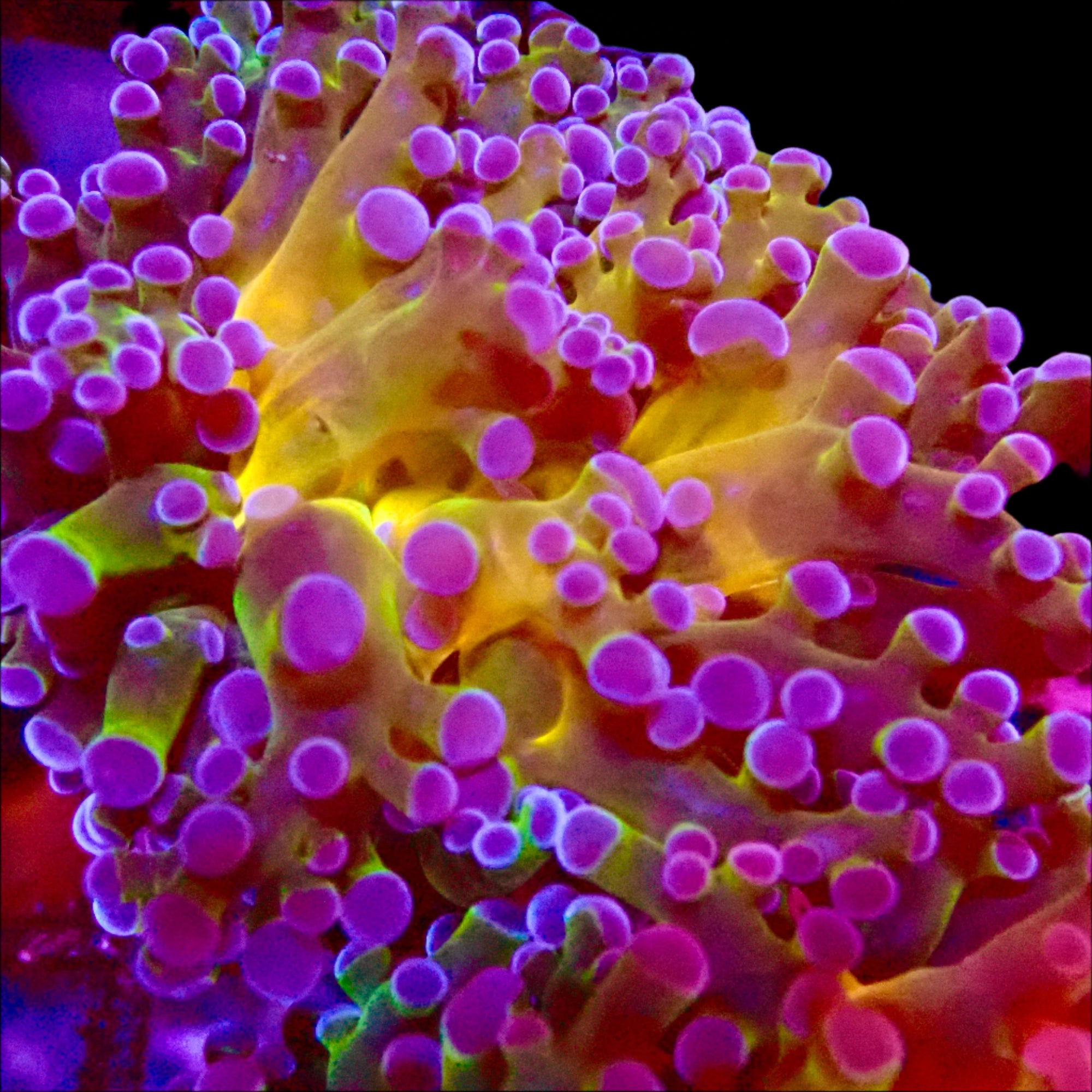
Octospawn Banana sold per head
Available
General Description:
The Euphyllia Paradivisa, or Frogspawn Coral, is a stunning LPS (Large Polyp Stony) coral known for its colorful, flowing tentacle-like polyps. With shades of green, pink, and brown, it adds movement and elegance to reef aquariums. It is ideal for beginner to intermediate aquarists due to its moderate care requirements and striking appearance.
Care Guide:
1. Tank Size and Setup:
• Minimum volume: 50 liters (13 gallons) to ensure parameter stability.
• Lighting: Moderate to intense (recommended PAR: 80–150 PAR). High-quality LED or T5 lighting is ideal.
• Placement:
• Middle or lower areas of the tank.
• Allow at least 4 inches (10 cm) of space around the coral to prevent aggressive interactions.
2. Water Parameters:
• Temperature: 75–79°F (24–26°C).
• Salinity: 1.024–1.026 (specific gravity).
• pH: 7.8–8.4.
• Calcium: 400–450 ppm.
• Alkalinity (KH): 8–12 dKH.
• Magnesium: 1250–1450 ppm.
• Nitrates: Below 10 ppm (ideally 2–5 ppm).
• Phosphates: Below 0.05 ppm.
3. Flow:
• Moderate and indirect. Excessive flow can damage the coral’s delicate polyps.
• Use adjustable pumps to create gentle, alternating currents.
4. Feeding:
• While it relies on photosynthesis, supplemental feeding promotes growth:
• Enriched brine shrimp, frozen mysis shrimp, or liquid/powdered LPS coral food.
• Frequency: 2–3 times weekly, preferably at night when tentacles are extended.
5. Compatibility and Tank Mates:
• Reef-safe: Yes, but its stinging tentacles can harm neighboring corals.
• Ideal companions: Peaceful fish like gobies, clownfish, or dwarf angelfish.
• Avoid: Aggressive fish like butterflyfish or invertebrates that may nip its polyps.
6. Maintenance and Growth:
• Regularly clean to prevent debris buildup.
• Perform biweekly water changes (10–15%).
• Moderate growth under optimal conditions.
7. Signs of Health:
• Fully extended polyps swaying gently in the current.
• Vibrant coloration without signs of tissue recession or bleaching.
8. Special Precautions:
• Keep sufficient space from other corals to avoid chemical or physical interactions.
• Avoid handling its soft tissues to prevent stress or infections.
• Maintain stable water parameters, as Euphyllia Paradivisa is sensitive to sudden changes.
 Telephone: 1 450-669-9256
Telephone: 1 450-669-9256 Email: sales@reefsolution.com
Email: sales@reefsolution.com







